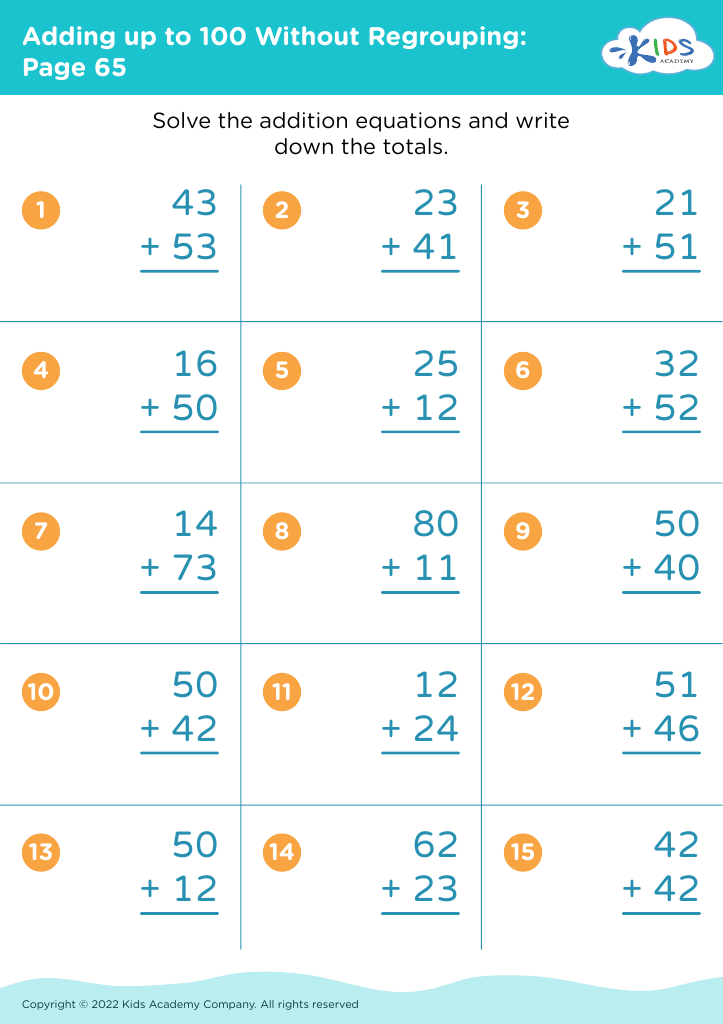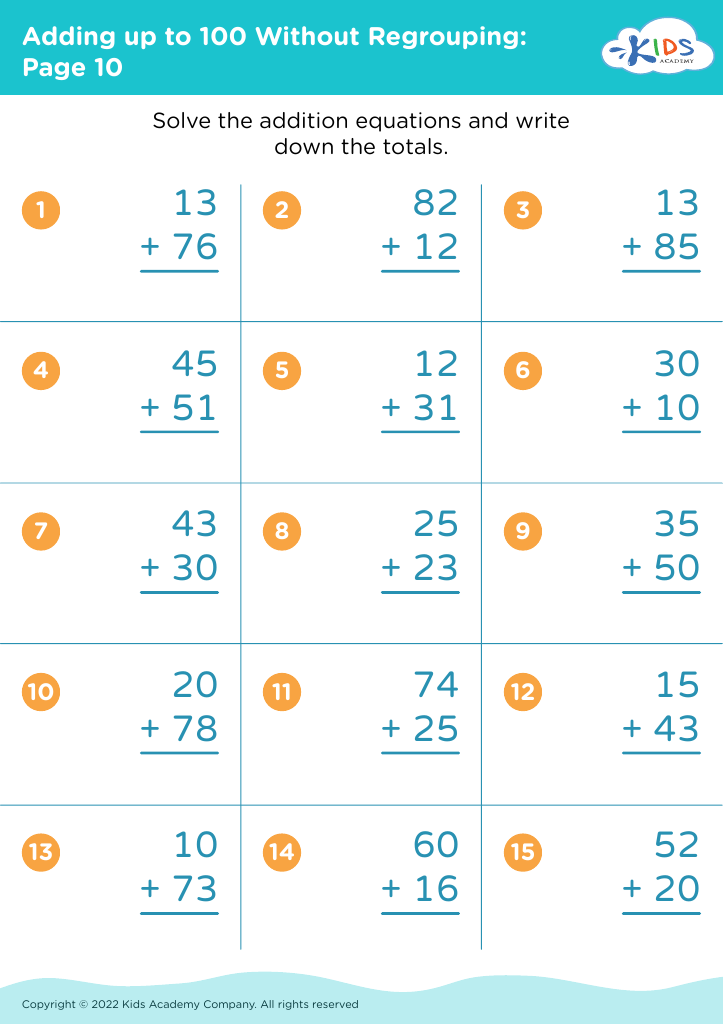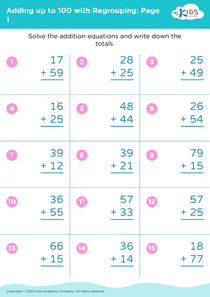Basic Math Skills Adding up to 100 Without Regrouping Worksheets for Ages 4-8
4 filtered results
-
From - To
Welcome to our engaging collection of "Basic Math Skills: Adding Up to 100 Without Regrouping Worksheets" designed specifically for children aged 4-8. These interactive worksheets offer a fun and effective way to practice essential addition skills, helping young learners build a strong mathematical foundation. Each worksheet focuses on simple addition problems that help children confidently grasp the concept of adding numbers without regrouping. Bright illustrations and engaging activities ensure that kids remain motivated while reinforcing their math skills. Perfect for classroom use or at-home practice, these worksheets are a valuable resource to make learning math enjoyable and accessible!
Basic math skills, such as adding up to 100 without regrouping, are foundational to a child’s overall cognitive development and future academic success. For children aged 4-8, mastering these early math concepts fosters a strong understanding of number sense and analytical thinking.
When parents and teachers prioritize these skills, they encourage critical reasoning and problem-solving abilities in young learners. Adding without regrouping — where the sum is kept within the range of 0 to 100 — helps children grasp the concepts of place value and combining numbers, which are crucial for more advanced math later on. It builds confidence, allowing them to approach math with a positive attitude, essential for their learning journey.
Additionally, solid early math skills correlate strongly with a child’s performance in later grade levels, impacting assessments and overall academic outcomes. Engaging students in fun, age-appropriate activities around these skills not only enhances their learning experience but also allows for parent-teacher collaboration, reinforcing the importance of a supportive learning environment. Thus, nurturing fundamental math abilities at a young age lays the groundwork for a lifelong affinity for mathematics and fosters a mindset geared towards exploration and intellectual growth.



















